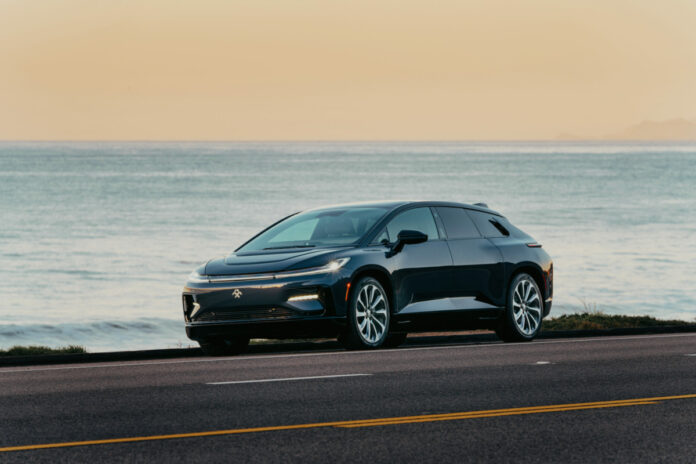Faraday Future Intelligent Electric Inc. has announced an incentive plan for all employees that is timed to the start of production and delivery this spring of its FF 91 Futurist electric vehicle.
The Gardena-based carmaker said it was targeting March 30 as the start of production on the Futurist — assuming receipt of funds from investors — at the company’s Hanford manufacturing facility. It was expecting to begin deliveries on or prior to April 30, once again assuming receiving funds from investors, according to a release from the company.
The incentive plan includes the grant of certain equity awards and cash bonuses to employees, the company release said.
Such a large-scale and powerful award reflects the commitment and encouragement of the board of directors of Faraday to all employees, and further lays the foundation for completing the start of production and start of delivery objectives on time.
Xuefeng Chen, chief executive of Faraday, said the incentives would help employees stay focused on start of production and delivery milestone dates.
“I would like to thank all of our dedicated employees, especially the (Faraday) veterans who have stayed with us through thick and thin, and I hope that those who love, believe in, and work hard for the company will be fairly incentivized,” Chen said in a statement.
The FF 91 EV was designed in the company’s Los Angeles-area headquarters and engineered in Los Angeles, Silicon Valley and China. The “global DNA” of the vehicle reflects the talent at Faraday and across the globe, with support from top-tier suppliers from countries such as Italy, Germany, Japan, Netherlands, China, Belgium and Switzerland, according to a company release.
Testing has shown that the FF 91 achieves an EPA-certified range of 381 miles on a single charge. It can accelerate from 0 to 60 miles per hour in under three seconds.
Faraday said last month that it had shipped one of the latest production-intent FF 91 Futurist testing vehicles to China for market testing and validation, including charging and infrastructure compatibility along with other hardware and software applications, according to a release from the company.
The shipment certifies the company’s planned promotion of its US-China dual-home market strategy, which calls for production and sales in both the U.S. and China, the world’s two largest markets for electric vehicles, the release said.

